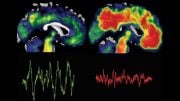
216 people aged 50 and older who resided in two Pittsburgh neighborhoods with a high proportion of African Americans participated in the research.
The study adds to the body of evidence concerning the relationship between sleep and cognition.
A new study found that among a sample of low-income African American individuals, more fragmented sleep and longer stretches of wakefulness after bedtime were related to inferior cognitive function, such as poor attention.
Researchers from the RAND Corporation and the University of Pittsburgh studied participants over a five-year period and discovered that individuals whose sleep declined with time performed worse in terms of attention, executive function, and visuospatial abilities.
According to the research, bettering sleep quality may aid in the prevention of dementias like Alzheimer’s and others, as well as help lessen other health inequalities. The findings were recently published in the Journal of Alzheimer’s Disease.
“Past research has shown that African American people show higher rates of an array of sleep problems, and also have higher rates and earlier onset of Alzheimer’s and related dementias when compared to white Americans,” said Wendy Troxel, the study’s lead author and a senior behavioral scientist at RAND, a nonprofit research organization. “Our findings suggest that sleep problems may be an important modifiable factor that contributes to cognitive aging.”
The results contribute to a growing body of research demonstrating that poor sleep health is an emerging risk factor for Alzheimer’s disease and associated dementias and that it may be an important and understudied biobehavioral pathway contributing to African Americans’ disproportionate burden of dementia.
The new study included 216 adults aged 50 and older who are part of a long-term RAND study called PHRESH, which is taking place in two mostly African American neighborhoods in Pittsburgh and is looking at the effects of social and environmental factors on people’s health.
Study participants underwent sleep monitoring during 2013 and again in 2018. In 2018, study participants underwent assessments of cognitive functioning and clinical adjudication of cognitive impairment.
The study found that both the level and changes over time in sleep efficiency (a measure of sleep fragmentation) and wakefulness during sleep hours were significantly associated with several cognitive domains, including attention, executive function, visuospatial ability, and immediate recall. Sleep duration was not associated with any cognitive outcomes.
“While our sample size was somewhat small, these results have important clinical and policy implications for prevention and intervention, as sleep is a modifiable risk factor that is influenced by individual and broader societal factors, including reduced access to health care and exposure to environments that can negatively impact sleep,” Troxel said. “It’s important to focus on multi-level determinants — including sleep — to address the disproportionate burden of Alzheimer’s disease and related dementias in African Americans.”
Researchers say the issue needs to be further addressed by additional longitudinal studies that include a larger sample, and that utilize a life course perspective to better understand how the legacy of structural racism contributes to the disproportionate burden of both sleep problems and cognitive decline among African American adults.
To that end, the RAND-University of Pittsburgh study team recently received funding from the National Institutes of Health to continue to study how exposure to different sources of stress stemming from structural racism contributes to sleep and risk for cognitive decline and Alzheimer’s disease in older African American adults.
The study was funded by the National Heart Lung Blood Institute, the National Institute of Aging, and the National Cancer Institute.
Reference: “Sleep Disturbances, Changes in Sleep, and Cognitive Function in Low-Income African Americans” by Wendy M. Troxel, Anna Haas, Tamara Dubowitz, Bonnie Ghosh-Dastidar, Meryl A. Butters, Tiffany L. Gary-Webb, Andrea M. Weinstein and Andrea L. Rosso, 14 June 2022, Journal of Alzheimer’s Disease.
DOI: 10.3233/JAD-215530









Be the first to comment on "Poor Sleep Found To Be Associated With Reduced Cognitive Function"